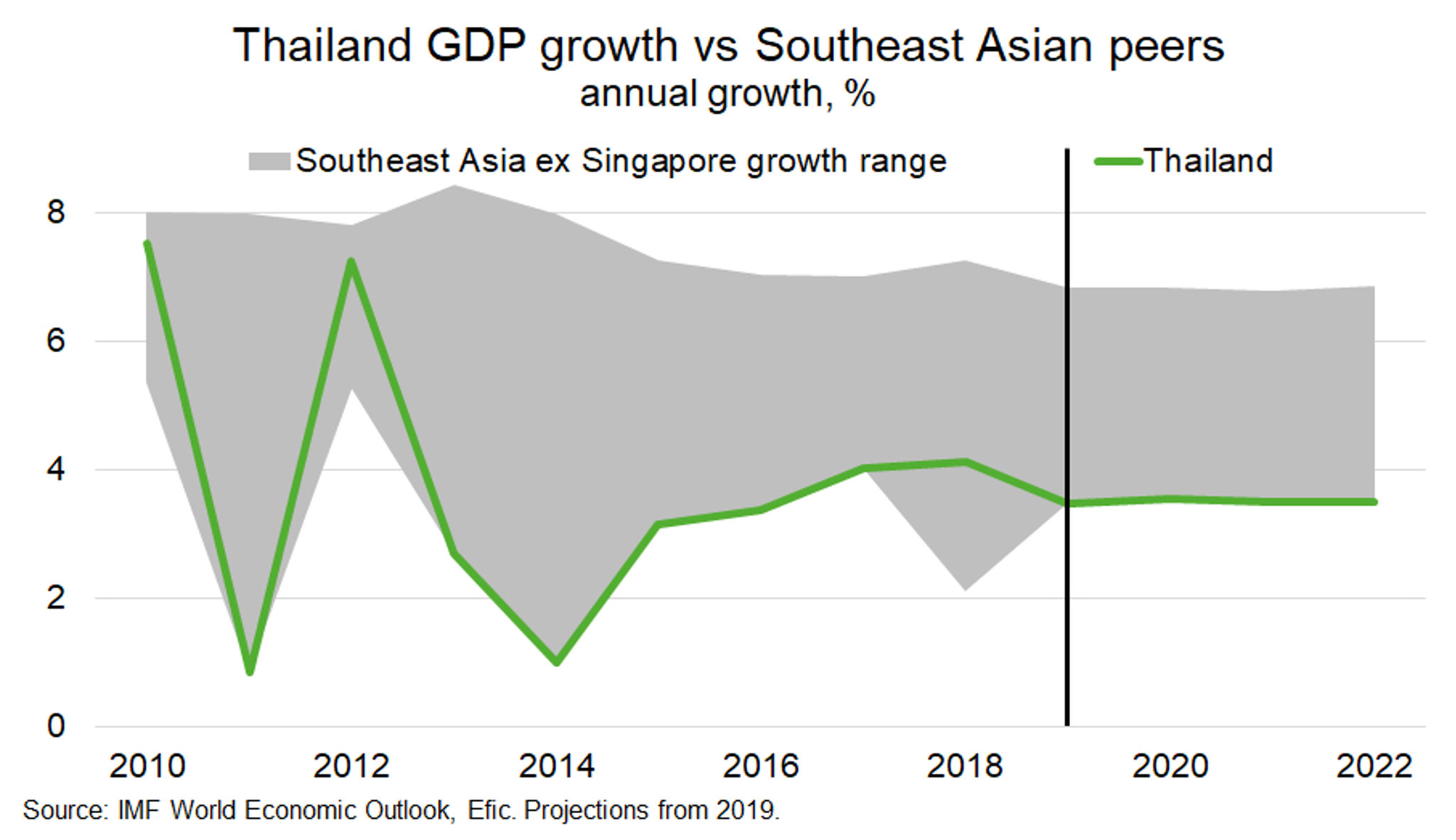Thailand—Risks to policy uncertainty rise after election
Results from Thailand’s March general elections, the first since the 2014 military coup, remain undecided. The Palang Prachart party led by former army general and the current Prime Minister (PM), Prayuth Chan-ocha, campaigned on a record of political and economic stability. The main challengers were led by Pheu Thai, the party deposed in the 2014 military coup. Initial results suggest Pheu Thai leads the count, with Palang Prachart coming in second. The finalised results are set for 9 May.
The current constitution, drafted by the military, states the PM is chosen by a joint sitting of both the lower house, with 500 elected representatives, and the Senate, with 250 members chosen by the military. This suggests the military-aligned Palang Prachart party only needs 126 seats in the lower house to install Prayuth Chan-ocha as PM. But without a majority in the lower house, Prayuth Chan-ocha will find it difficult to push through his economic and social policies.
Economic growth under the military government has struggled, particularly when compared to most of Thailand’s South East Asian peers. Investment in the Eastern Economic Corridor is yet to materialise. Recent export prints have also been weak, pushing Thailand to its largest trade in nearly 6 years. In the absence of an effective political majority backing the new government, prospects of economic reform and effective planning remain uncertain.

